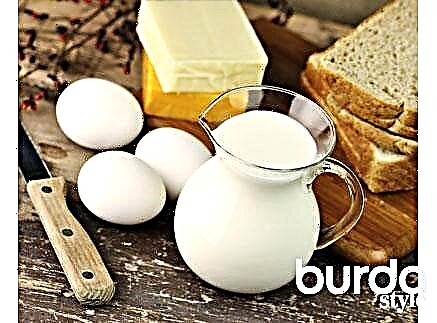Calcium, phosphorus, iron - in our body you can find a variety of elements of the periodic table. Which of them are especially necessary for us and how to make up for their lack?
Today, more than 20 mineral elements are considered indispensable for the human body, and this list continues to grow. Minerals are a building material for cells, provide acid-base balance and neuromuscular activity, are part of enzymes and act as catalysts for biochemical processes. Performing such an important work, mineral substances are present in the body in very low concentrations and are divided according to this criterion into two groups: macroelements (calcium, phosphorus, potassium, sulfur, sodium, chlorine, magnesium) - their content is more than one hundredth of a percent - and microelements (iron, zinc, iodine, selenium, copper, manganese, fluorine, chromium, molybdenum, vanadium, nickel, silicon, arsenic, cobalt) - they are less than a thousandth of a percent. Scientists believe that barium, tin, bromine, strontium and other elements are also involved in biological reactions, but studies on this subject have not yet been completed.
From the bowels of the earth
The repository of minerals is the earth's interior. But how do these elements get into our cells? A very long way: first they are "caught" from the soil and water by simple organisms and plants, then they end up in the body of animals that use plants for food, and finally, they get to our table with food.The mineral content in the body reflects the composition of the soil and water of a particular area. Areas are known (they are called endemic) with a particularly low content of iodine, fluorine, selenium, magnesium or other elements in the environment.
Tip
Take an interest in the composition of the soil and water in your area. If the area is endemic in the content of any minerals, you can make up for their deficiency with the help of special medicines or food additives - and here the advice of a doctor is needed. Under normal conditions, supplement your diet with vitamin-mineral complexes, which usually contain a set of the most popular elements.

-Come to the table!
Adverse ecology, the use of fertilizers, dry periods reduce the content of nutrients in food - this is another cost to civilization. But even the available mineral substances, the body can not always absorb - the degree of their bioavailability is different. Take calcium, for example. It is poorly absorbed from cereal plants, and phytic acid is to blame for this. And oxalic acid forms poorly soluble oxalates with calcium and reduces its absorption from vegetables and herbs. At the same time, we can get enough calcium from dairy products, as it is present there in a bioavailable form.
Tip
In order for the necessary set of macro- and microelements to enter the body with food, follow the diet - the food must be varied. And remember what products supply us with certain substances (see below).
-Supertrio
Potassium, sodium and chlorine maintain an acid-base balance in the body. Violating it can lead to serious health problems. The lack of these elements occurs in hot weather, with high physical exertion, salt-free diet or excessive enthusiasm for the sauna. The first alarming symptoms are muscle weakness, fatigue, bags under the eyes, peeling and itching of the skin, cramps, arrhythmia.

However, replenishing the supply of necessary substances is not difficult: it is enough to include dried apricots, prunes, apples, grapes, avocados, bananas, as well as beef and sea fish in the diet. And if you follow a salt-free diet, try to eat at least 50 g of salted herring once a week.
Tip
Do not miss the time to enjoy watermelons: they have more potassium than any other product. And in terms of iron content, watermelon is second only to lettuce and spinach. Also, its pulp contains such vital minerals as calcium, sodium, phosphorus.
-Remove stress
Magnesium is the most important "anti-stress" element that protects our nervous system from shocks. It is no coincidence that signs of magnesium deficiency are muscle twitching, irritability, palpitations, insomnia, and sweating. In addition, this element is part of almost 300 enzymes and chemical compounds. Without it, the absorption of B vitamins and calcium is impossible.
Magnesium deficiency can lead to osteoporosis, cause heart pain, increase or decrease blood pressure, and even cause seizures that are more severe than calcium deficiency. How to be

More often, include pumpkin and sunflower seeds, nuts, oatmeal, buckwheat, rice, beans, kohlrabi, bananas, peas, green beans, cheese, cocoa, and dark chocolate in the menu. And keep in mind: with chronic diseases of the pancreas and problems with bile secretion, magnesium is absorbed extremely poorly from food - an additional intake of drugs with magnesium will be needed.
Tip
Do not abuse black tea, coffee, alcohol and diuretics - they reduce the reserves of this valuable element in the body.
A matter of taste
Poor appetite, decreased perception of the taste and smell of food are often the first evidence of a lack of zinc in the body. Do not neglect this: zinc is one of the most important elements in the body. It is part of more than 100 enzymes, hormones, proteins, and even insulin molecules. Zinc is necessary to maintain immunity, with its deficiency, susceptibility to respiratory infections increases, wounds heal poorly. And this mineral is also responsible for harmony - it normalizes fat metabolism, increases the rate of fat breakdown and prevents fatty liver infiltration.
Sources of zinc are meat, liver, eggs, pumpkin and sunflower seeds, beans, peas, oatmeal. However, zinc is absorbed worse from plant foods.
Tip
Zinc is considered a "male" mineral - it is found in the largest amount in the gonads of the stronger sex and is used to form sperm. Therefore, often feed your beloved men meat!
TEXT: ELENA SHVEDOVA. PHOTO: GRUIZZAGRUIZZA / ISTOCKPHOTO.COM;
SCANRAIL / LIAURINKO / SUNNYS / FABIOMAX.COM / TOMBOY2290 /
FOTOLIA.COM (5).



